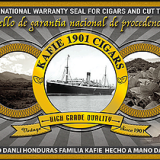Cigar smoking has been a popular pastime for centuries, and it’s had an undeniable impact on our world. From its inception in Spain, cigar smoking quickly spread across Europe and then to the New World, becoming integral to the history of many countries. Cigars have not only been enjoyed by wealthy elites but also by people from all walks of life. The unique flavor, smell and texture of cigars can evoke memories and emotions that will last a lifetime.
Contents:
The history of cigar smoking is closely linked with the development of trade between different parts of the world. As tobacco became more widely available, smokers began trading their favorite blends with other cultures, creating unique flavors that are still enjoyed today. This tradition continues today as cigar aficionados exchange information about their preferred brands or types of cigars through clubs or online forums.
In addition to being an important part of international commerce and culture, cigars have also played a role in politics over the years. Many political leaders have taken up cigar smoking as a symbol of power or influence; for example, Winston Churchill was rarely seen without one. Even among non-smokers, cigars can evoke feelings associated with success or luxury – something often sought after by politicians who want to appeal to voters from diverse backgrounds.
Beyond these social implications however lies another fascinating aspect: how did humans learn how to make such perfect cylinders? It’s believed that Native Americans first figured out how to roll tobacco leaves into tightly packed cylinders before they were introduced to Europeans; once this technique was adopted by settlers it evolved into what we now know as modern day cigars – complete with intricate designs like bands or monograms.
To sum up – while there may be some debate around whether smoking is healthy or not – there’s no denying thatcigar smoking has left its mark on our world over time; shaping commerce through trade routes and providing symbols of wealth and prestige for politicians alike.
The Rise of Cigar Smoking
The rise of cigar smoking can be traced back to the early 16th century when tobacco was first introduced to Europeans by Christopher Columbus. The earliest known documentation of a cigar being smoked is found in the diary of Jose de Acosta, a Spanish Jesuit missionary who visited Cuba in 1530. He wrote that natives were “inhaling smoke from certain herbs” through their noses and mouths.
Soon after this discovery, cigar smoking spread rapidly throughout Europe and other parts of the world as traders and sailors exchanged knowledge about tobacco with people they encountered on their travels. It soon became popular among all classes – royalty, nobility, wealthy merchants and ordinary citizens alike – as it provided an affordable source of pleasure for everyone. As such, its popularity increased significantly over time until it eventually became a social norm across many countries around the globe.
Cigar smoking has had a lasting impact on our culture since then; not only does it remain a common pastime today but it has also been immortalized in countless works of literature, art and film throughout history. From famous paintings by great masters such as Goya to classic novels like Ernest Hemingway’s “The Old Man And The Sea”, cigars have become deeply entrenched in our collective consciousness as symbols of sophistication and success that transcend time and place.
A Symbol of Wealth and Power
Cigar smoking has long been associated with the upper echelons of society, a symbol of wealth and power. From political figures to celebrities, cigars have come to represent success. The aroma of a cigar is often seen as an indication of one’s status in life, lending further credence to its reputation as a signifier of opulence and luxury.
It has been used for centuries as a form of currency. Wealthy tobacco barons in colonial America would pay their employees in tobacco leaves rather than money, leading to those same employees becoming cigar makers themselves; this allowed them to leverage their newfound expertise into better-paying jobs within the industry. The same can be said for today’s world – there are still some places where cigars are accepted as payment or exchanged for goods and services.
Not only that but cigars also carry historical significance; they were often smoked by soldiers during wartime as a way to relax between battles or keep morale up when faced with extreme conditions on the battlefield. This further reinforced the notion that smoking was an activity reserved only for those who could afford it – even if these people were merely enlisted men fighting for their country’s cause at the time.
Cultural Significance
Cigar smoking has long been a symbol of luxury and status, but it’s also had an indelible impact on culture throughout the world. From Cuba to Spain, cigars have come to represent more than just a pastime; they are symbols of power, victory and relaxation. The ancient Mayans believed that cigar smoke was used to communicate with the gods, while other cultures saw it as a form of meditation. In some societies, smoking cigars is still an integral part of daily life.
The practice can be traced back centuries ago when indigenous tribes in Mexico and Central America used tobacco for medicinal purposes and religious rituals. Today, many countries have adopted the tradition for its cultural value rather than its medical benefits – with smokers taking pride in their cigars being handmade or passed down through generations. Cigars were even known to be given as gifts from royalty and dignitaries during times of celebration or victory. For example, after winning major battles in Europe during World War II, General Dwight D Eisenhower rewarded his troops with Cuban cigars – cementing the reputation that cigar smoking was only reserved for those who had achieved great things in life.
In recent years, there has been resurgence in cigar smoking among young people who see it as cool trend which sets them apart from their peers – making them look sophisticated and worldly. This new generation of aficionados view themselves as connoisseurs who appreciate all aspects of cigar-making such as rolling techniques or types of leaves used – demonstrating how far this traditional custom has come over time and how influential it remains today both within society at large and specific communities around the world.
Transformative Moments in History
Cigar smoking has been around for centuries and its effects have often been overlooked. However, cigars have played an important role in many transformative moments in history. One example is the signing of the Declaration of Independence by the Founding Fathers. The image of them gathered together with their cigars has become iconic and it serves as a reminder that cigar smoking was part of early American culture.
Smoking cigars was also significant during World War II when Winston Churchill famously enjoyed a smoke during his speeches to rally troops and boost morale. His cigar habit was even used by some British propagandists to create an image of strength in times of crisis. Similarly, Cuban President Fidel Castro regularly smoked cigars while giving speeches or making appearances on television, helping him to cultivate a powerful persona and influencing public opinion about him and his government.
Today, cigar smoking continues to be popular among celebrities and politicians alike who are looking for ways to make a statement or show off their status symbolically without saying anything at all. Cigars represent luxury, sophistication, power, wealth – qualities that many people aspire towards – so it’s no surprise that they remain such an influential accessory in today’s society.
Smoke-filled Rooms of the Elite
In the late 1800s, cigar smoking became a popular pastime among the elite. Those who could afford it were able to indulge in this luxury, often smoking in special clubs or private rooms specifically designed for those with cigars and pipes. The smoke-filled rooms of the wealthy served as hubs of influence, where business deals were made, friendships formed and secrets shared.
The social aspect of cigar smoking allowed people to form connections that would have otherwise been difficult to make. People from different backgrounds would come together over their love of cigars, which provided an opportunity to learn about different cultures and perspectives. This helped expand people’s knowledge beyond their own experiences and gave them a more global understanding of the world around them.
The aroma created by burning tobacco also held its own significance during these gatherings; it was said that the scent could set a certain mood or convey certain messages between members without having to speak aloud. As such, many believe that cigar smoke was responsible for some of history’s most influential decisions being made behind closed doors within these exclusive circles.
An Iconic Accessory
Cigar smoking has become synonymous with an iconic accessory, the cigar case. The stylish and sophisticated cases are designed to keep cigars in perfect condition for smokers who like to enjoy their smoke anywhere. They come in a variety of shapes, sizes and materials ranging from leather to metal or even plastic depending on your preference. Many cigar aficionados prefer natural materials such as cedar or mahogany as these help preserve the flavor of the tobacco. Not only do they offer great protection against dust, moisture and damage but they also look stunning when taken out at social gatherings or parties.
The cases can also be used to show off a smoker’s collection of cigars – especially if it is adorned with beautiful engravings or emblems which may represent the brand of cigar being smoked. Cigar connoisseurs often choose designs that match their personal style and status, while others simply want something practical yet attractive enough to display their prized possessions proudly without any fuss. These days, there are some fantastic contemporary designs available that combine both functionality and aesthetics perfectly – offering an eye-catching piece of luxury for those who appreciate fine craftsmanship along with quality tobacco products.
In addition to providing excellent protection for cigars, cigar cases have become collectible items in themselves; highly sought after by collectors all over the world due to their historical significance and unique beauty. From vintage art deco models through modern designer pieces crafted from rare woods – there is something for every taste within this timeless market segment which helps commemorate one of life’s greatest pleasures: enjoying a good cigar.
Unforeseen Consequences
The unforeseen consequences of cigar smoking have been felt in many areas of life, from the economy to public health. With the advent of industrialization, cigars quickly became an integral part of everyday life for many people across the globe. This has had implications on a range of issues, some more obvious than others.
One example is the environment: although it may not seem like a major issue at first glance, cigar smoke is actually full of toxins that can pollute both air and water sources when released into the atmosphere. In fact, studies have shown that even low levels of exposure to tobacco smoke can be detrimental to human health over time. This means that if you’re a frequent smoker or live near someone who smokes often, you could be putting yourself and your family at risk without knowing it.
Another consequence involves economics: while cigar production was initially seen as a way to boost revenue for local economies in countries where tobacco was produced, its long-term effects have been much less positive due to high taxes imposed on these products by governments worldwide. As such, this has resulted in fewer jobs being created in these industries and increased prices for consumers – making it difficult for those with lower incomes to enjoy cigars without breaking their budgets.
Cigar smoking has had far-reaching implications beyond what was originally anticipated – with both positive and negative effects depending on how they are viewed. Despite this though, there is no denying that its presence has undeniably shaped our world today – whether good or bad remains up for debate.
New Beginnings
Cigar smoking has played an integral part in the shaping of our world, with many great moments and even revolutions beginning with a puff. After Christopher Columbus discovered tobacco in 1492, cigars have gone on to become a symbol of power, prestige and new beginnings.
The Cuban Revolution was a pivotal moment for cigar smokers everywhere as it propelled their favorite hobby into mainstream culture. Led by Fidel Castro and his ‘26th July Movement’, this revolution marked the beginning of a whole new era for Cuba – one that celebrated the art of cigar smoking. This newfound enthusiasm led to many more people trying out cigars than ever before and became so popular that it soon spread across the entire globe.
The rise in popularity also saw an influx of innovations surrounding cigars, from accessories such as cigar cutters or humidors to products like flavored rolling papers and custom-made boxes designed especially for storing them safely away from heat and light exposure. All these advancements made cigar smoking much more enjoyable than ever before and further cemented its place as one of the most beloved pastimes around today.








